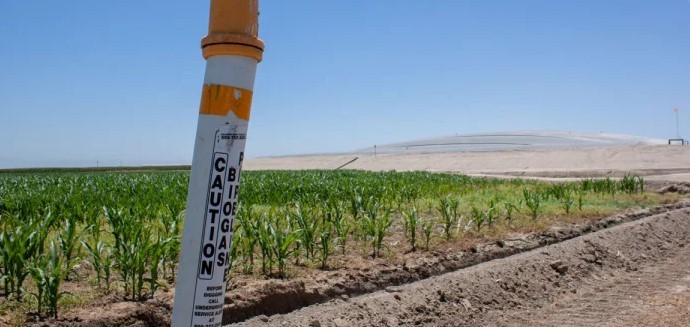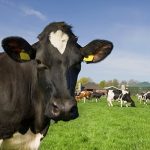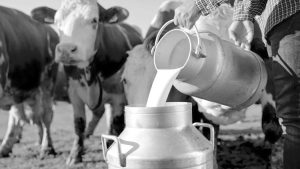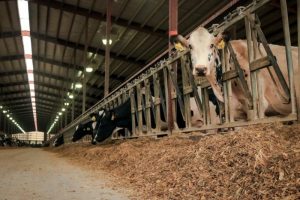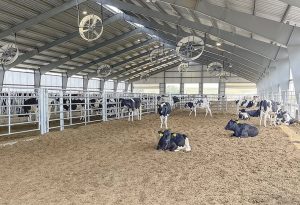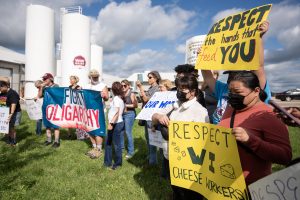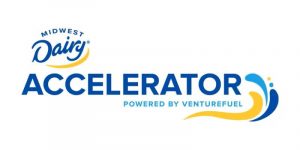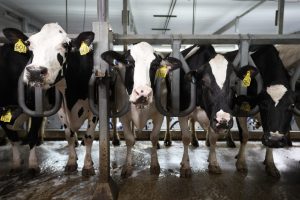
Jared Fernandes runs a dairy farm with 3,000 dairy cows that generate about 45,000 tons of manure annually. So when the state mandated that he reduce greenhouse gas emissions, like the methane released from all that poop, “you get upset,” he said.
California regulations require farms to lower their greenhouse gas emissions. But the state helped pay for on-farm changes, like new technology designed to capture methane. Since 2015, California’s dairy digester program has awarded nearly $600 million in grants and matching funds.
“It’s that that brought in these companies that wanted to build these renewable fuel things,” Fernandes said.
Things like the black, rubbery dome he was walking on. It covers a pit of liquid manure and traps methane, keeping the potent greenhouse gas out of the atmosphere. Putting in a digester like this can cost about $5 million.
But all Fernandes had to pony up was some land and an agreement to supply manure — that he gets paid for. So he didn’t have to spend money. But now that he’s seen it work, he said: “I’d be willing to invest on my own.”
His methane, along with the same stuff from other dairies, is piped to a Calgren Renewable Fuels plant.
“We gather manure roughly from about 75,000 cows right now,” said Calgren’s Sarah Gonzales. She said that keeps 150,000 tons of greenhouse gas out of the air — equivalent to the annual emissions of about 30,000 cars. More dairies are joining.
“Which will probably put us over 100,000 cows,” she said.
Calgren cleans the methane, puts it into the natural gas supply and banks carbon credits. Buyers snatch those up to offset their carbon footprints. Chicago-based energy company Amp Americas builds digesters for Midwest dairies. CEO Grant Zimmerman said that two years ago, farmers there questioned this whole manure-to-methane pipeline. Not anymore.

“It’s been an amazing acceleration in the market and in the sophistication of all the players,” he said.
Amp Americas sells to California now. Zimmerman said he’s ready to supply other states as they develop low-carbon fuel markets.
